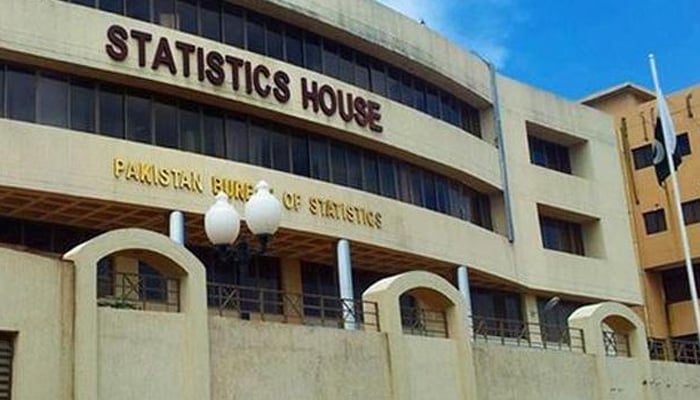Electronic data interchange likely to curb $5bln of under-invoicing
KARACHI: Pakistan is likely to save five billion dollars, which are lost to under-invoicing or mispricing in a year, by signing electronic data-sharing agreements with its trading partners, a senior industry official said.
“Protocols for electronic data interchange (EDI) should be agreed with all the main trading partners to stop an estimated annual under-invoicing of $5 billion,” Ehsan Malik, chief executive officer (CEO) of Pakistan Business Council (PBC) said. “A comprehensive review of import valuations is necessary to stem misuse and under-invoicing. Import duty at the higher value, weight, volume or quantity should apply.” Malik, in a letter to the Finance Minister Asad Umar, called the minister’s attention towards improving fiscal position, which would ultimately help the country increase exports, revenue collection and tax base.
Directorate General of Reforms and Automation – Customs has already developed software for exchange of trade data on real-time basis.
The country planned to deploy the system for its neighbouring China with which trade deficit ballooned to nearly $10 billion in the last fiscal year of 2017/18.
PBC, in its previous report, estimated discrepancy in trade data vis-à-vis China at more than five billion dollars.
The council’s chief said commercial importers should not be favoured at the expense of manufacturers.
“Cascading tariffs are vital for promoting local value addition,” he said. “Raw materials not available locally should attract the lowest tariffs and finished goods produced in Pakistan the highest to encourage import substitution.”
Malik advised that regulatory duty should not be levied on raw materials and intermediate used for manufacturing in the country, “especially when there is no regulatory duty on finished goods”.
PBC CEO said the penal tax rates applicable to non-filers are not substantially higher than for filers.
“A margin of 3:1 should at a minimum apply to encourage more to join the tax base.”
Malik further said the federal and provincial governments ‘urgently’ need to address the fragmentation and complexity arising from multiple taxes. “Unification of taxes, digitisation and centralisation of tax collection and simplification of returns will help bring down the cost and make it easier to do business.”
PBC’s chief said the export sectors, especially textiles, are facing cash flow issues on account of delayed refunds, especially of sales tax. Five export-oriented sectors should be moved to ‘zero rating’ to avoid liquidity crunch for them.
Malik said the group taxation, introduced through the Finance Act 2007, helped in promoting documentation and fostering corporatisation and allowed corporate entities to grow into conglomerates and minority shareholders to participate. It also resulted in the broadening of the capital market and led to substantial increase in tax revenues.
Later, the government abolished exemption for inter-corporate dividends in a group structure for entities designated under group relief under amendments into the Finance Act 2016.
“This resulted in incidence of double (at times, triple) taxation on inter-corporate dividends,” Malik said in the letter. “We strongly urge you to restore the provisions of the Finance Act 2007 with respect to group taxation.”
-
 China: Stunning Drone Show Lights Up Night Sky Ahead Of Spring Festival 2026
China: Stunning Drone Show Lights Up Night Sky Ahead Of Spring Festival 2026 -
 Andrew's Epstein Scandal: Will King Charles Abdicate Following King Edward's Footsteps?
Andrew's Epstein Scandal: Will King Charles Abdicate Following King Edward's Footsteps? -
 Billy Joel Leaves Loved Ones Worried With His 'dangerous' Comeback
Billy Joel Leaves Loved Ones Worried With His 'dangerous' Comeback -
 Prince William Dodges Humiliating Question In Saudi Arabia
Prince William Dodges Humiliating Question In Saudi Arabia -
 Dax Shepard Describes 'peaceful' Feeling During Near-fatal Crash
Dax Shepard Describes 'peaceful' Feeling During Near-fatal Crash -
 Steve Martin Says THIS Film Has His Most Funny Scene
Steve Martin Says THIS Film Has His Most Funny Scene -
 Kensington Palace Shares Update As Prince William Continues Saudi Arabia Visit
Kensington Palace Shares Update As Prince William Continues Saudi Arabia Visit -
 Fugitive Crypto Scammer Jailed For 20 Years In $73m Global Fraud
Fugitive Crypto Scammer Jailed For 20 Years In $73m Global Fraud -
 Will Andrew Mountbatten-Windsor Finally Go To Jail Now That King Charles Has Spoken Out? Expert Answers
Will Andrew Mountbatten-Windsor Finally Go To Jail Now That King Charles Has Spoken Out? Expert Answers -
 Melissa McCarthy Reveals Her Tried And Tested ‘corpse’ Night Time Routine That’s Lost Her 95lbs
Melissa McCarthy Reveals Her Tried And Tested ‘corpse’ Night Time Routine That’s Lost Her 95lbs -
 Horrifying Pictures Of The Kidnapper Of Savannah Guthrie's Mother Released
Horrifying Pictures Of The Kidnapper Of Savannah Guthrie's Mother Released -
 Andrew's Ex-girlfriend Launches Brazen Attack On Epstein Victims On Piers Morgan Show
Andrew's Ex-girlfriend Launches Brazen Attack On Epstein Victims On Piers Morgan Show -
 Andrew Mountbatten-Windsor 'on His Own' As Palace Gives Green Light To Law Enforcement
Andrew Mountbatten-Windsor 'on His Own' As Palace Gives Green Light To Law Enforcement -
 Kanye West's Tweet About Super Bowl Halftime Resurfaced After Bad Bunny's Show
Kanye West's Tweet About Super Bowl Halftime Resurfaced After Bad Bunny's Show -
 'FBI' Star Juliana Aidén Martinez Tease Her Return To 'Law And Order: SVU' After Quitting
'FBI' Star Juliana Aidén Martinez Tease Her Return To 'Law And Order: SVU' After Quitting -
 Cardi B's Emotional Words To Pal Amid Stefon Diggs Rumored Breakup Revealed
Cardi B's Emotional Words To Pal Amid Stefon Diggs Rumored Breakup Revealed




